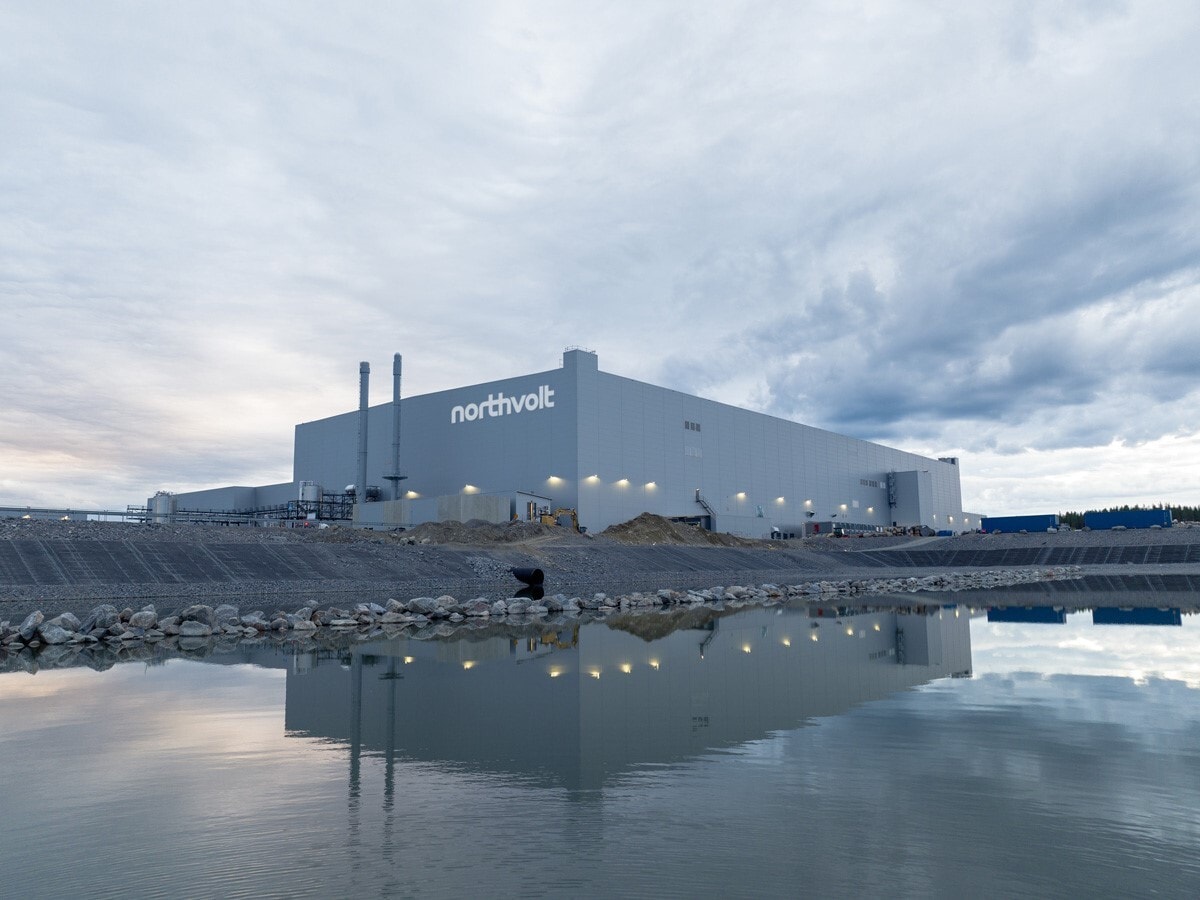Northvolt is negotiating with banks for over $5bn financing to expand its operations and become Europe's largest battery manufacturer. It is eyeing an IPO as early as 2024, with a potential valuation of $20bn. The company will decide next month whether to build a third plant in Germany or the US, testing Europe's response to US green tech subsidies. Will it manage to boost Europe’s battery manufacturing ambitions?
- Northvolt is reportedly in talks about a public listing as early as 2024, with a potential valuation of $20bn, according to FT.
- The company is planning a second "gigafactory" in collaboration with Volvo Cars and a third plant in Germany or the US.
- European battery makers are emphasising the importance of swift EU action to counter US green tech subsidies.
Northvolt eyes $5bn
Swedish start-up Northvolt is reportedly in discussions to secure over $5bn in financing as it seeks to become Europe's largest battery manufacturer. According to individuals familiar with the matter, the company is negotiating with multiple banks to raise the debt financing, with an agreement potentially being reached later this year, FT reported on 26 March.
Established in 2017, Northvolt has emerged as the primary European competitor to major Asian battery producers, such as China's Contemporary Amperex Technology [CATL] and South Korea's LG [66570.KS]. The company manufactured its first battery at its European factory in late 2021. Northvolt is currently preparing to begin construction on a second "gigafactory" in collaboration with Volvo Cars [VLVLY] in Gothenburg. A decision on whether to build a third plant in Germany or the US is expected in April.
Northvolt also has plans to launch a large-scale recycling facility adjacent to its first plant in Skellefteå, northern Sweden, and is expanding production at a battery systems factory in Poland. The group is said to be in discussions with banks about a public listing as early as 2024, with a potential valuation of approximately $20bn. To date, Northvolt has raised more equity financing than any other unlisted start-up in Europe.
European battery makers
Several European industrial groups have criticised the EU's response to the Net Zero Industry Act announced earlier this month. Meanwhile, European battery makers have welcomed the proposed European response to the US's substantial green technology subsidies but have warned that swift action is required to prevent investment from flowing across the Atlantic. Companies like Volkswagen [VOW.DE] and Norway's Freyr Battery [FREY] have accelerated plans to construct battery factories in North America, while delaying European plants due to generous subsidies provided by the US Inflation Reduction Act.
Battery makers are emphasising the importance of the temporary crisis and transition framework approved by Brussels this month, which allows for subsidies until 2025 to help with investment costs for projects such as batteries, wind and solar energy, and carbon capture and storage. The strength of the European response will be tested next month when Northvolt decides on the location for its next factory.
The EU's proposal is expected to be more complex than the Inflation Reduction Act. Freyr CEO Tom Jensen told FT that he expects the EU to offer a combination of measures such as direct grants, energy price guarantees, and debt support.
In 2022, European battery cell production reached approximately 70 gigawatt-hours, according to Statista research. This number is expected to consistently grow in the coming years, with battery production output anticipated to hit 1,374 gigawatt-hours by 2030. However, as of February 2023, nearly 70% of Europe’s proposed battery production initiatives faced potential cancellation or postponement.
Funds in focus
The Global X Autonomous & Electric Vehicles ETF [DRIV] offers exposure to companies operating in sectors including automobile manufacturers, technology and hardware providers, and EV component producers. DRIV's investment strategy focuses on companies that stand to benefit from the increased adoption of EVs and autonomous vehicles, as well as the associated technologies and infrastructure. The fund’s largest holdings include Nvidia [NVDA], Tesla [TSLA] and Apple [AAPL]. The ETF is up 12.8% year-to-date, as of 31 March.
The KraneShares Electric Vehicles & Future Mobility Index ETF [KARS] focuses on companies that are expected to benefit from the growing demand for EVs, battery technologies, autonomous driving systems, and other aspects of the future mobility landscape. The fund’s top holdings include Nidec [NJDCY], Panasonic Holdings [PCRFY] and Samsung SDI [6400.KS]. The ETF is up 8.82% year-to-date, as of 31 March.
Continue reading for FREE
- Includes free newsletter updates, unsubscribe anytime. Privacy policy





